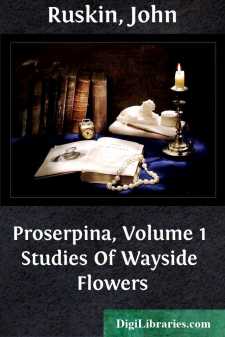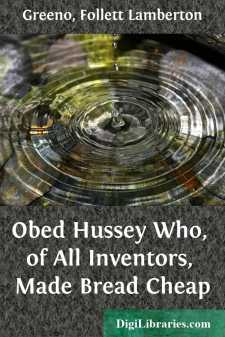Non-Classifiable
- Non-Classifiable 1768
Non-Classifiable Books
Sort by:
by:
James O'Leary
CHAPTER I. There was once a man named Calphurnius, the son of Potitus, a presbyter, by nation a Briton, living in the village Taburnia (that is, the field of the tents, for that the Roman army had there pitched their tents), near the town of Empthor, and his habitation was nigh unto the Irish Sea. This man married a French damsel named Conchessa, niece of the blessed Martin, Archbishop of Tours; and...
more...
INTRODUCTION To most of us who have read of the early history of Virginia only in our school histories, Pocahontas is merely a figure in one dramatic scene—her rescue of John Smith. We see her in one mental picture only, kneeling beside the prostrate Englishman, her uplifted hands warding off the descending tomahawk. By chance I began to read more about the settlement of the English at Jamestown and...
more...
by:
Anonymous
NEW TESTAMENT STORIES THE WISE MEN'S VISIT. The birth of Jesus Christ was announced by two remarkable events: the coming of wise men from the East, and the appearance of angels to some shepherds at Bethlehem. The wise men were probably astronomers; and in watching the stars they had seen one that had led them to leave their own country, and take a long journey to Jerusalem. Most likely they rode...
more...
by:
Anonymous
OLD TESTAMENT STORIES ADAM AND EVE. In the beginning God made the heaven and the earth He also made the sun, moon, and stars; trees, flowers, and all vegetable life; and all animals, birds, fishes, and insects. Then God made man. The name of the first man was Adam, and the first woman was Eve. Both were placed in a beautiful garden called the Garden of Eden, where they might have been happy continually...
more...
AN AID TO FAITH. The certainty of those things which most surely are believed among us, is a matter quite distinct from their antecedent probability or improbability. We know, and take for facts, that Cromwell and Napoleon existed, and are persuaded that their characters and lives were such as history reports them: but it is another thing, and one eminently calculated to disturb any disbeliever of such...
more...
by:
John Ruskin
INTRODUCTION. Brantwood, 14th March, 1874. Yesterday evening I was looking over the first book in which I studied Botany,—Curtis's Magazine, published in 1795 at No. 3, St. George's Crescent, Blackfriars Road, and sold by the principal booksellers in Great Britain and Ireland. Its plates are excellent, so that I am always glad to find in it the picture of a flower I know. And I came...
more...
by:
Richard Haines
WHEREBY, I. All Poor people and their Children from five or six years old may be employed and maintained; as also all Beggars, Vagrants, &c. restrained and for ever prevented, and so all Parishes eased of that intolerable Burden. II. Many Hundred Thousand Pounds kept at home, which now every year goes out of the Kingdom for Linnen, whereby our Wealth becomes a prey to other Nations. III. Much Land...
more...
by:
Hugo Munsterberg
INTRODUCTION APPLIED PSYCHOLOGY Our aim is to sketch the outlines of a new science which is to intermediate between the modern laboratory psychology and the problems of economics: the psychological experiment is systematically to be placed at the service of commerce and industry. So far we have only scattered beginnings of the new doctrine, only tentative efforts and disconnected attempts which have...
more...
CHAPTER I Definition of Psychology of Management. — The Psychology of Management, as here used, means, — the effect of the mind that is directing work upon that work which is directed, and the effect of this undirected and directed work upon the mind of the worker. Importance of the Subject. — Before defining the terms that will be used more in detail, and outlining the method of treatment to be...
more...
PREFACE Every step in the progress of modern achievement has been met with strong resistance and hostile contest. There is in business an actual firing line where continuous conflict wages, and so fierce does the struggle become that it requires a certain class of men possessing qualities, not only of energy and perseverance, but of tenacity and combativeness, aggressive and determined to fight to the...
more...











